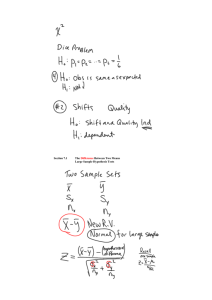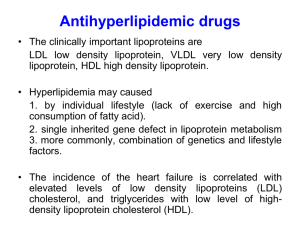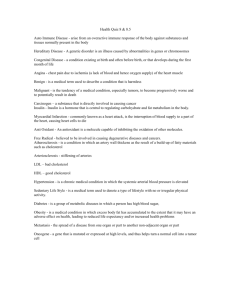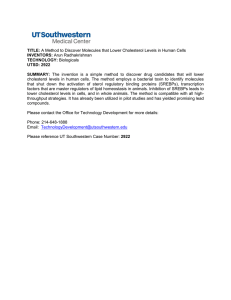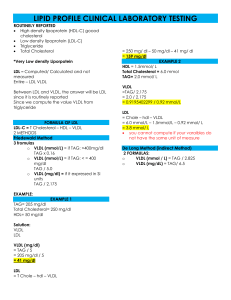Medical Encyclopedia: VLDL Page 1 of 1 Medical Encyclopedia: VLDL (Print Version)
advertisement
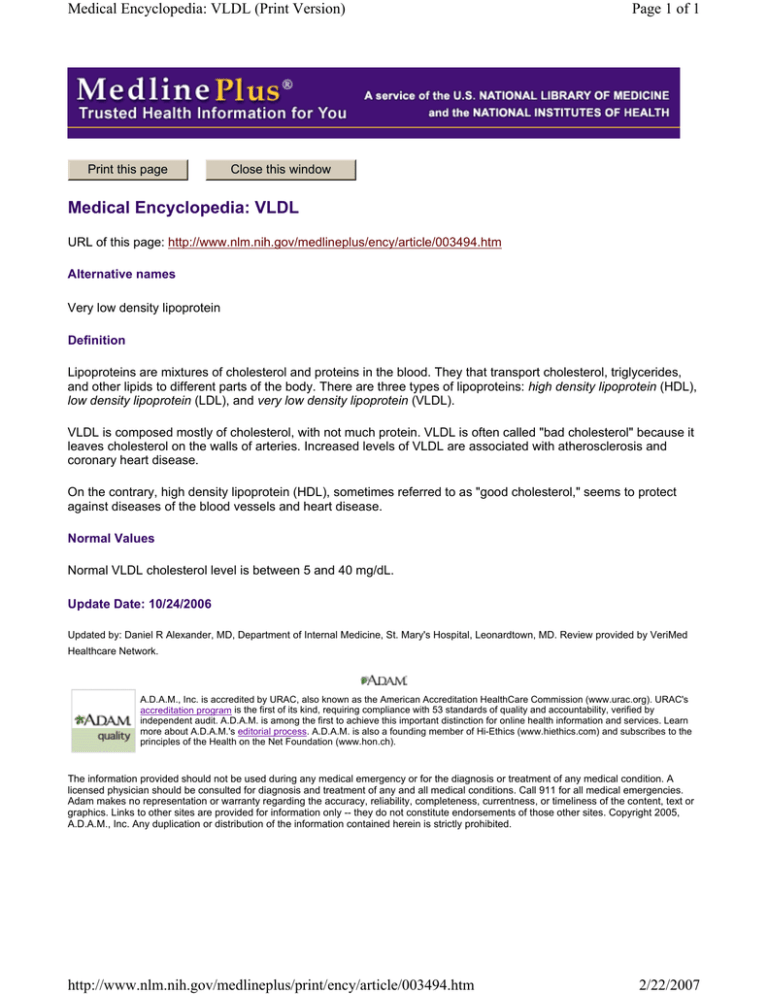
Medical Encyclopedia: VLDL (Print Version) Print this page Page 1 of 1 Close this window Medical Encyclopedia: VLDL URL of this page: http://www.nlm.nih.gov/medlineplus/ency/article/003494.htm Alternative names Very low density lipoprotein Definition Lipoproteins are mixtures of cholesterol and proteins in the blood. They that transport cholesterol, triglycerides, and other lipids to different parts of the body. There are three types of lipoproteins: high density lipoprotein (HDL), low density lipoprotein (LDL), and very low density lipoprotein (VLDL). VLDL is composed mostly of cholesterol, with not much protein. VLDL is often called "bad cholesterol" because it leaves cholesterol on the walls of arteries. Increased levels of VLDL are associated with atherosclerosis and coronary heart disease. On the contrary, high density lipoprotein (HDL), sometimes referred to as "good cholesterol," seems to protect against diseases of the blood vessels and heart disease. Normal Values Normal VLDL cholesterol level is between 5 and 40 mg/dL. Update Date: 10/24/2006 Updated by: Daniel R Alexander, MD, Department of Internal Medicine, St. Mary's Hospital, Leonardtown, MD. Review provided by VeriMed Healthcare Network. A.D.A.M., Inc. is accredited by URAC, also known as the American Accreditation HealthCare Commission (www.urac.org). URAC's accreditation program is the first of its kind, requiring compliance with 53 standards of quality and accountability, verified by independent audit. A.D.A.M. is among the first to achieve this important distinction for online health information and services. Learn more about A.D.A.M.'s editorial process. A.D.A.M. is also a founding member of Hi-Ethics (www.hiethics.com) and subscribes to the principles of the Health on the Net Foundation (www.hon.ch). The information provided should not be used during any medical emergency or for the diagnosis or treatment of any medical condition. A licensed physician should be consulted for diagnosis and treatment of any and all medical conditions. Call 911 for all medical emergencies. Adam makes no representation or warranty regarding the accuracy, reliability, completeness, currentness, or timeliness of the content, text or graphics. Links to other sites are provided for information only -- they do not constitute endorsements of those other sites. Copyright 2005, A.D.A.M., Inc. Any duplication or distribution of the information contained herein is strictly prohibited. http://www.nlm.nih.gov/medlineplus/print/ency/article/003494.htm 2/22/2007
